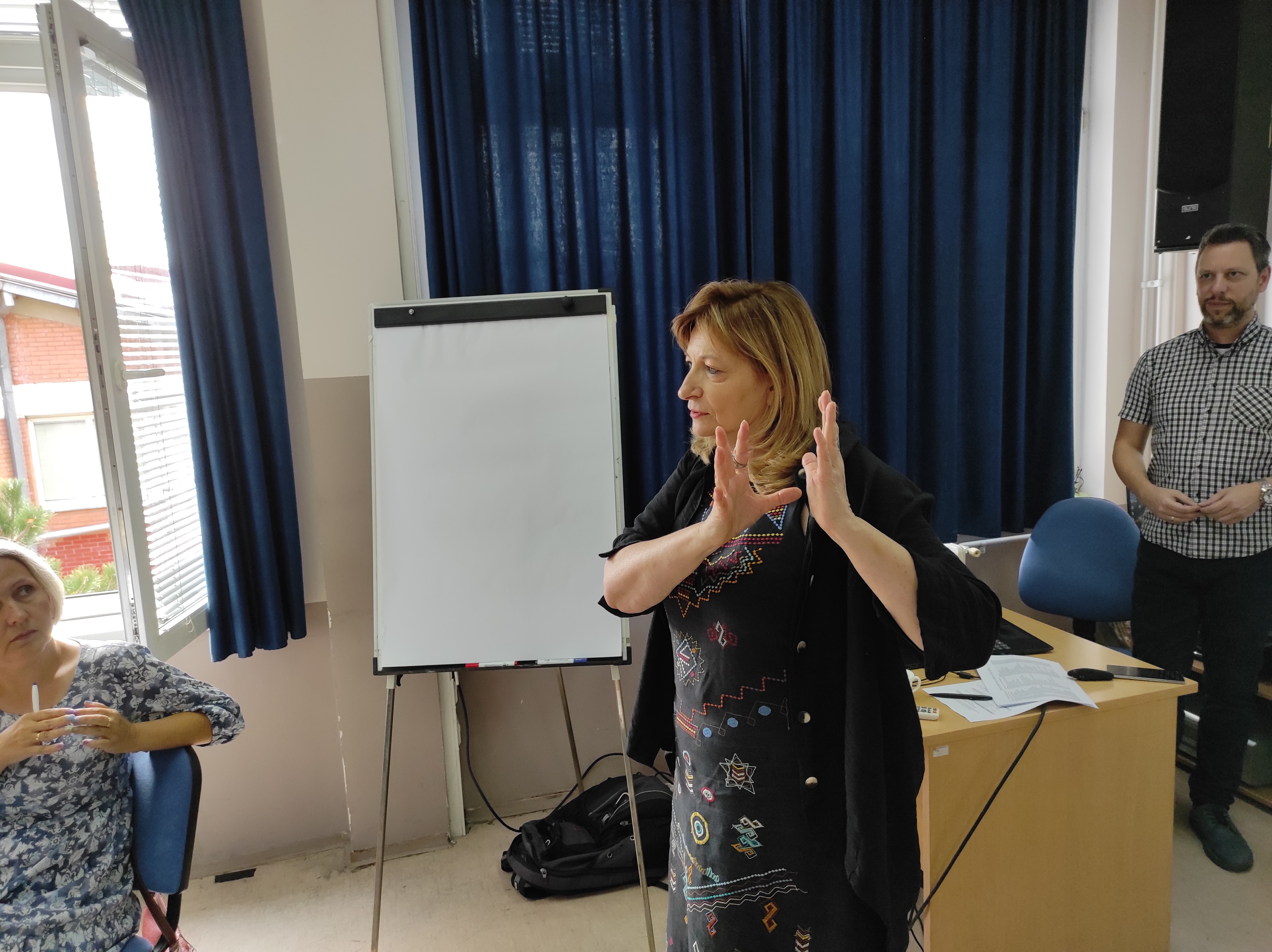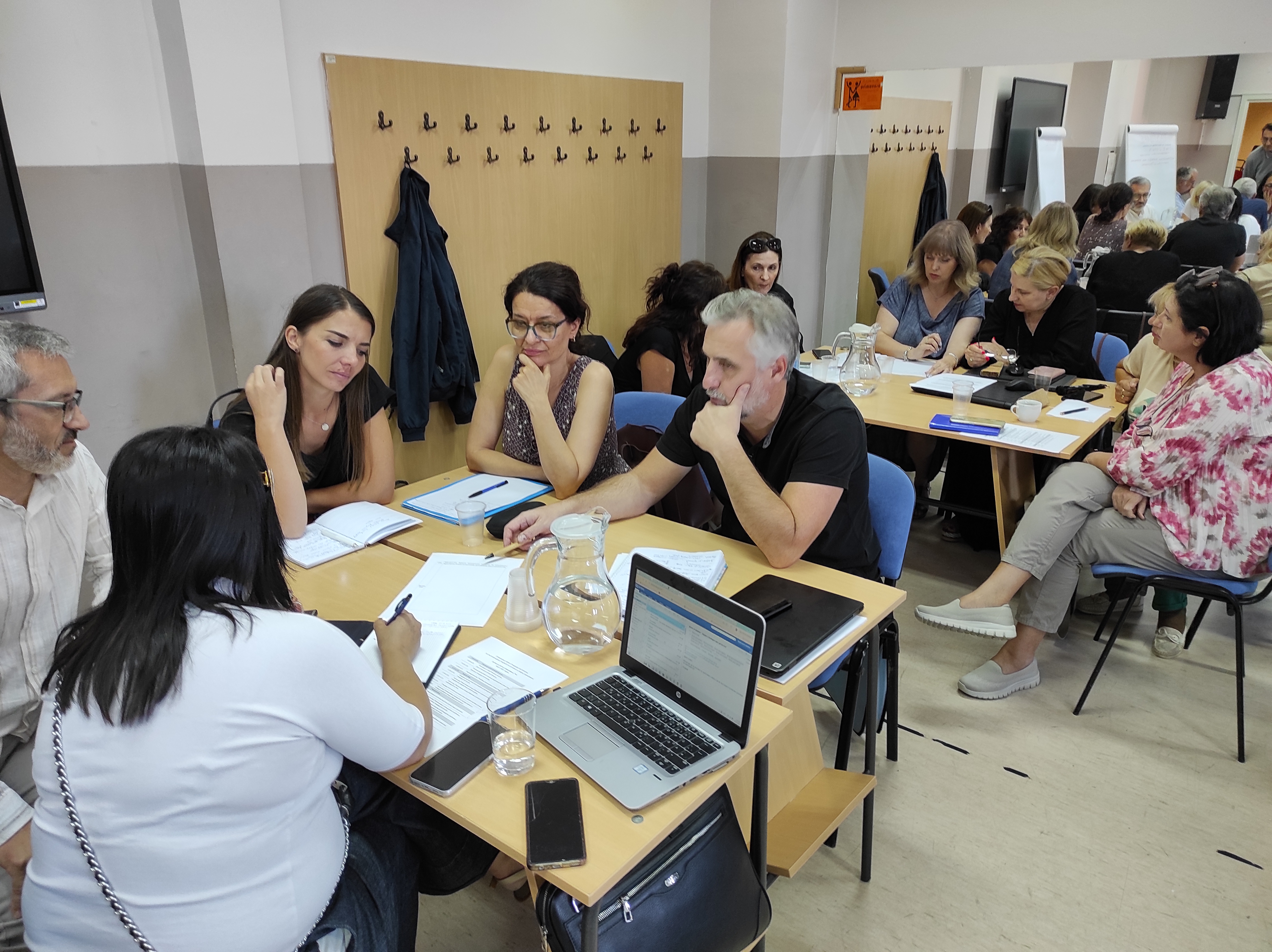Training on Education Standards Held
The introduction of new educational achievement standards represents an important step toward improving the quality and equity of primary and secondary education in Serbia. The standards lay a solid foundation for positive changes in the system, while their full value will be realized through consistent and responsible implementation.
The first two one-day trainings for educators on educational standards were held on 25–26 August 2025 at the Niš Center for Professional Development as part of the activities of the project “EU Support to the Educational Policies of the Republic of Serbia,” funded by the European Union and implemented in cooperation with the Ministry of Education, Science, and Technological Development.

“One of the most important objectives of the training is to address the question of how the new achievement standards can enter schools and become functional, producing the desired effects. It is important to recognize the challenges and obstacles that will inevitably arise, as well as to define possible solutions,” emphasized Professor Dragica Pavlović Babić, project expert, during the introduction to the training.
More than 50 educational advisors, external consultants of the Ministry of Education, Science, and Technological Development, and external evaluators from Niš, Leskovac, Vranje, Bujanovac, Zaječar, Jagodina, and Kruševac worked through group exercises, discussions, and presentations to cover key topics – the structure of achievement standards, classification of outcomes by subject competencies, cross-curricular competencies, identification of potential obstacles, and more.
The teacher is not a textbook presenter but one of the key individuals who contributes to the development of applicable knowledge and skills in students. To motivate students, particular emphasis is placed on highlighting competencies – where and how the new knowledge will be applied in practical life situations, as concluded during the training.

The knowledge and experiences exchanged during the training will serve as a foundation for participants’ collaboration with members of school teams, completing the planned cycle. Upcoming trainings will be held in Novi Sad, Belgrade, and Kraljevo, and their content will be further improved based on evaluations and suggestions from previous seminars. The trainings were prepared and conducted in cooperation with the Institute for the Evaluation of the Quality of Education and Upbringing.
The European Reference Framework of Key Competences for Lifelong Learning provides support for students, educators, and other professionals. Eight key competences are defined: literacy; multilingualism; mathematical and scientific; digital; personal, social, and learning competence; citizenship; entrepreneurship; cultural awareness and expression.
Education is the foundation of personal and professional development. It enables individuals to become more active members of society and better prepared to contribute to social and economic progress. The European Union (EU) and Serbia closely cooperate on the modernization and reform of the education sector in Serbia, and this project is part of that joint effort. The project complements the Sector Reform Agreement with the Republic of Serbia, valued at €28.5 million, covering the period 2024–2026.
The EU is the largest partner of the Republic of Serbia in the modernization of the education system. Since 2003, the EU has donated more than €130 million to education reform at all levels, aiming to strengthen the role of education as a foundation for social and economic development.


